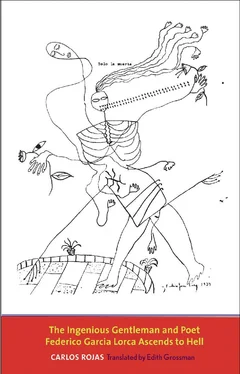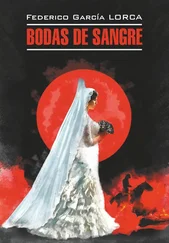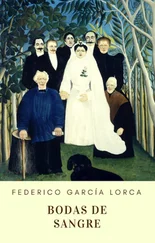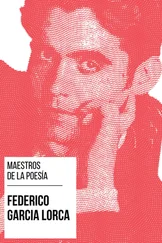PREPARE FOR YOUR TRIAL.
To die is to sleep or perhaps to dream, says Hamlet. Immediately, and having a presentiment of his destiny on this spiral, which at one time or another we all inhabit, he asks himself with surprising clairvoyance what dreams await him in death. That consideration leads him to reject suicide, fearful of the worst nightmare: this long insomnia that only acquittal at trial can bring to an end. Three centuries after Hamlet, Proust believed as a boy that each spectator watched performances at the theater in isolation (“ … In other words, as we read history or a voyeur shamefacedly spies through the keyhole”). When he was finally taken to see Berma in Phèdre , he discovered the stage shared by the entire audience. He then deduced that artifice, an inheritance of Greek democrats, transformed each person into the center of the theater. In hell, I now deduce that in this way we would have a Ptolemaic world, the boxes, orchestra seats, mezzanine, and top balcony, in the middle of a Copernican firmament. Two concentric universes, their signs forever opposed.
PREPARE FOR YOUR TRIAL.
Perhaps a way of preparing myself before I am judged is to evoke Hamlet and Proust in order to infer their oblique presentiments of hell and their sojourns there. The theater Proust imagined, to the admiring praise of Dalí, where each spectator would observe the staged work isolated and separated from the rest of the audience, is nothing but his own conception of À la recherche du temps perdu: a dead time of people and places destroyed and devastated by war, which the novelist patiently resuscitates in a bedroom lined with cork in order to better remove himself from the other world around him. At the same time, and perhaps this is the most original of his portents, it is an oblique analogy to hell, where every deceased person awaiting trial or condemned at trial contemplates the return to the life of his past, blind to the others and exiled among them. In another, no less notable, coincidence, the Recherche begins under the sign of sleeplessness and sleeplessness is hell, where the dreams in death feared by Hamlet become staged memories. Or where at times the staging of memories also precedes the arrival of those predestined to watch them in their corresponding theaters.
PREPARE FOR YOUR TRIAL.
On earth they never tried me. They killed me without imposing a sentence. Until the day Ruiz Alonso and his underlings came to arrest me in the house on Calle de Angulo, 1, which perhaps no longer exists in Granada though it rises again on my stage, I thought I was as safe from death as if I hadn’t been born. I didn’t know then either how to prepare for my trial, which, ironically, would never come. The house, which belonged to the Rosales family, is all white on the stage beneath that August’s sun. It has two stories and a terrace, with a well-lit door on the narrow, shady street. It has a courtyard, a fountain, a marble staircase, a grilled window facing the sidewalk, and another side door. This opens onto narrow steps that lead to the second floor, almost isolated from the rest of the property. The window illuminates the library of my friend the poet Luis Rosales, who is almost never here now except at night. Luis has hidden me on the upper floor with the complicity of his family, even though all his brothers are Falangistas and the Civilian Government has decreed the death penalty for anyone who shelters a fugitive. The Rosales family hid others as well or arranged for their escape from Granada. On several occasions I was wakened from an uneasy sleep by strange voices and footsteps on the ground floor. I never asked anyone anything. Surviving in this city of terror these days is as private and shameful as an act of love between two men.
PREPARE FOR YOUR TRIAL.
If the systematic memory of my dying were part of my defense before the hidden judges, they would condemn me again with no trial at all. Recollections of the Civil War, when the fields of Spain filled with the dead as I predicted to Martínez Nadal, are not in order. They are jumbled together in streaks of images, glittering, almost flashing behind the stage. Luis Rosales, back from the firing lines, comes one night to my hiding place. The front must be very odd, because the unmarried Rosales brothers often return from there at nightfall to sleep in their parents’ house. Luis has come from the Motril sector, where, as he assures me, he can get me to the Republican lines without any danger, as he has done already with many others. And to be fair, he says he also helped several fugitives from the government to escape to this side. “In those fields you get lost without hearing a shot or finding a soul,” he reiterates in a low voice so as not to wake his aunt Luisa, who shares the upper floor with me and takes care of my cavalry almost like a mother. “Taking you to the other side would be the easiest thing in the world.” I shake my head and say I don’t want to be hunted down like a rabbit coming out of a wood or beside an irrigation ditch. On several occasions we’ve had the same useless debate, and now Luis withdraws and unexpectedly concedes, perhaps so as not to make me think that he and his family are moved by the desire to be free of my presence. “Whatever you want,” he agrees, shrugging. “In the final analysis, they can’t arrest you here either.”
PREPARE FOR YOUR TRIAL.
“In the final analysis, they can’t arrest you here either.” After the panic of the first few days, I almost began to believe it. But in some buried part of my soul throbs the clouded presentiment that I am not master of my fate. There, in that chamber excavated, perhaps, in the center of my being, I knew I had lived my final day in Madrid before, step by step and instant by instant, it was enough to abandon myself to that obscure memory, lost in an existence earlier than the irrevocable time of clocks, to almost predict forgetting the coffee cup on the balcony or the presence of Ruiz Alonso on the express. I also know now that if I had yielded to Luis’s advice, I would have passed over to the government’s side through Motril. In a war where officers of the Falange, like the Rosales brothers, sleep at home at night, the front is undoubtedly deserted in many places. And yet I even exaggerate my fear of escaping when Luis suggests it to me, resorting to the memory of my extreme panic when I came to hide in this house. In reality, and given the reign of terror that the rebels imposed on Granada, the risks of those of us who hide in the city are greater than the dangers of a flight across the countryside. I fell into similar contradictions even before I hid on Calle de Angulo, when Luis himself urged me to seek refuge in the house of Don Manuel de Falla. In his opinion, I would be safer there than with his parents because no one would dare burst into the home of a universally celebrated composer so well known for his piety. I guessed immediately he was right, and sensed that Don Manuel, who had been so fond of me in my early, more ambitious youth, would have helped me gladly even if only not to miss the chance to perform a charitable act. Even so, I rejected his urging and cited the fact that Falla had silently become angry when I decided to dedicate the “Ode to the Blessed Sacrament of the Altar” to him. A Catholic as traditional and sensitive as he would never forgive me for having compared the Lord of his devotions and mine, though I was a nonpracticing believer, to the heart of a frog pierced by a needle. The truth is I chose the Rosales family’s house as a refuge and want to remain here until they come to arrest me, because in this way I fulfill my inevitable destiny. One might say that the book of my life and death, including my sleeplessness and banishment on the spiral of hell, precedes me and determines my fate and my actions.
Читать дальше












